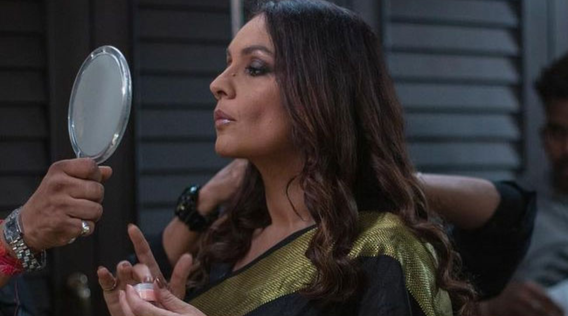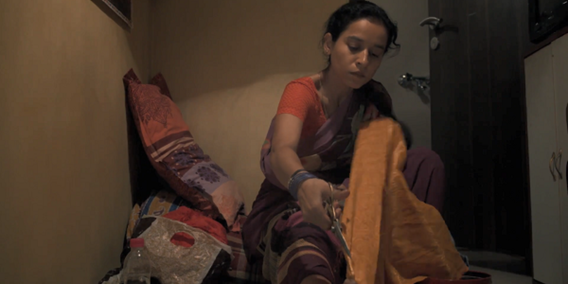Think of the last time you were completely absorbed in a book or movie—and then it was over.
You're left with a mixed bag of feelings. I hate endings, especially when they come too soon or when I am completely immersed in the experience. If a full stop were a feeling, that's what happens: a sense of finality, feeling lost, purpose getting blurry. How will I find something that will make me feel this way again?
Relationship endings hit the same way, but with devastating intensity. The pain is like losing your favorite limb—utterly destabilizing. With it comes the spiral: What do I do now? Could I have done more? How do I start over? These "what now?" questions create overwhelming panic.
Most people who seek therapy come right after a breakup, wanting to move on, cope, and forget. But something unexpected happens—they start learning who they are. The "how" gets defined by discovering themselves in real time. The thing that felt impossible to move on from becomes a memory, eventually less of a priority in therapy.
Rosy Retrospection: When everything was "perfect"
I had a client who started therapy to cope with separating from his partner. Session after session, we discussed how great the relationship was, how lovely his partner was, and how everything was really good. We reached a point where he had nothing but admiration left.
I felt confused: Why was there a separation if things were really this good? He seemed confused too—wanting help with relationship pain, but describing no actual pain. Were things really that perfect?
In cognitive psychology, there's a term for this: "rosy retrospection"—a bias where you remember the past more positively than it actually was.
Have you experienced this? Remembering restaurant food as better than it was, a friendship as closer than it was, childhood experiences as more magical than they were?
You might think: if this creates positive memories, what's the problem? Here's the thing—how we feel shapes the narratives we tell ourselves, and how we remember things gets filtered through these feelings and narratives. In my client's case, he felt good, which meant everything was going well, which led to the question: how could it have ended?
Memory is profoundly influenced by emotions. When we cling to emotions that fit our preferred narrative, it blurs what actually happened. We start connecting our past with abstract ideals rather than the real situations that occurred.
Coping with the end of a relationship is difficult enough. It becomes especially brutal when we hold the illusion of the relationship being "the best,"—making the present feel insufferable. If we look at only the yellow in a rainbow and dismiss the other colors, clouds, rain, and light that created it, we distort our understanding of how it came to exist. Similarly, when we see a relationship as only good or only bad, we distort reality and lose sight of how we actually got to where we are. This leaves us drowning in despair, convinced nothing will ever be good enough again.
Hindsight Bias: When you "knew all along"
Another client came in with almost the opposite story. She knew exactly what happened and why it didn't work out. She practically knew it wasn't a good relationship from the start and that this would happen. She seemed to have sensed it would end on the first date.
I was genuinely impressed with her detailed analysis as she explained, "When he said this, I knew..." and "When he did that, I realized..." We evaluated every situation that gave her insight into why it wouldn't work—until we hit a wall: "Hmm... I don't know why I stayed if I knew all along."
When we explored why she stayed, we discovered she may not have really known at the time. Now that it was over, her current knowledge had rewritten her memories. There was this brutal internal battle: How could she have ignored the signs? How did she not trust herself? How could she have let this happen? The shame was crushing as she blamed and criticized herself relentlessly.
This is hindsight bias—the tendency to view events as more predictable than they were.
Her understanding of why the relationship ended got tangled up with the idea that what she knows now, she must have known back then. How could she not? It gave her comfort to believe the outcome was predictable, that she had some control. She was also finding evidence to match what she was feeling, fueling more shame and guilt. She promised herself she'd never let this happen again and became overconfident that she never would.
This becomes the trap of hindsight bias—it's difficult to let go of the control you feel after a breakup. You become hypervigilant, watching yourself and future partners with exhausting intensity.
Processing without the bias
Breakups are difficult and painful. The feelings that surface can seem overwhelming, and there's no "right" way to cope. In trying to deal with the pain, we might get swept away by focusing on outcomes rather than processing the actual feelings and thoughts.
We can work through painful experiences by addressing our feelings directly and consciously examining outcomes—so these biases don't end up dictating our reality and future relationships. The goal isn't to avoid all bias (that's impossible), but to recognize when our minds are trying to create neat narratives from messy, complex experiences.
Sometimes the most healing thing we can do is sit with the uncomfortable truth: relationships are complicated, endings are rarely clean, and our memories—however vivid—are not always reliable witnesses to what happened.
Still aching from an ending?
You're not alone. Let this psychologist-designed breakup tool help you find clarity and closure.
Explore What Happens After Goodbye







